Unlike more common kidney stones, cystine stones occur in people born with cystinuria—a rare, lifelong, and serious genetic disorder. Because cystinuria is genetic, other family members may also have it.
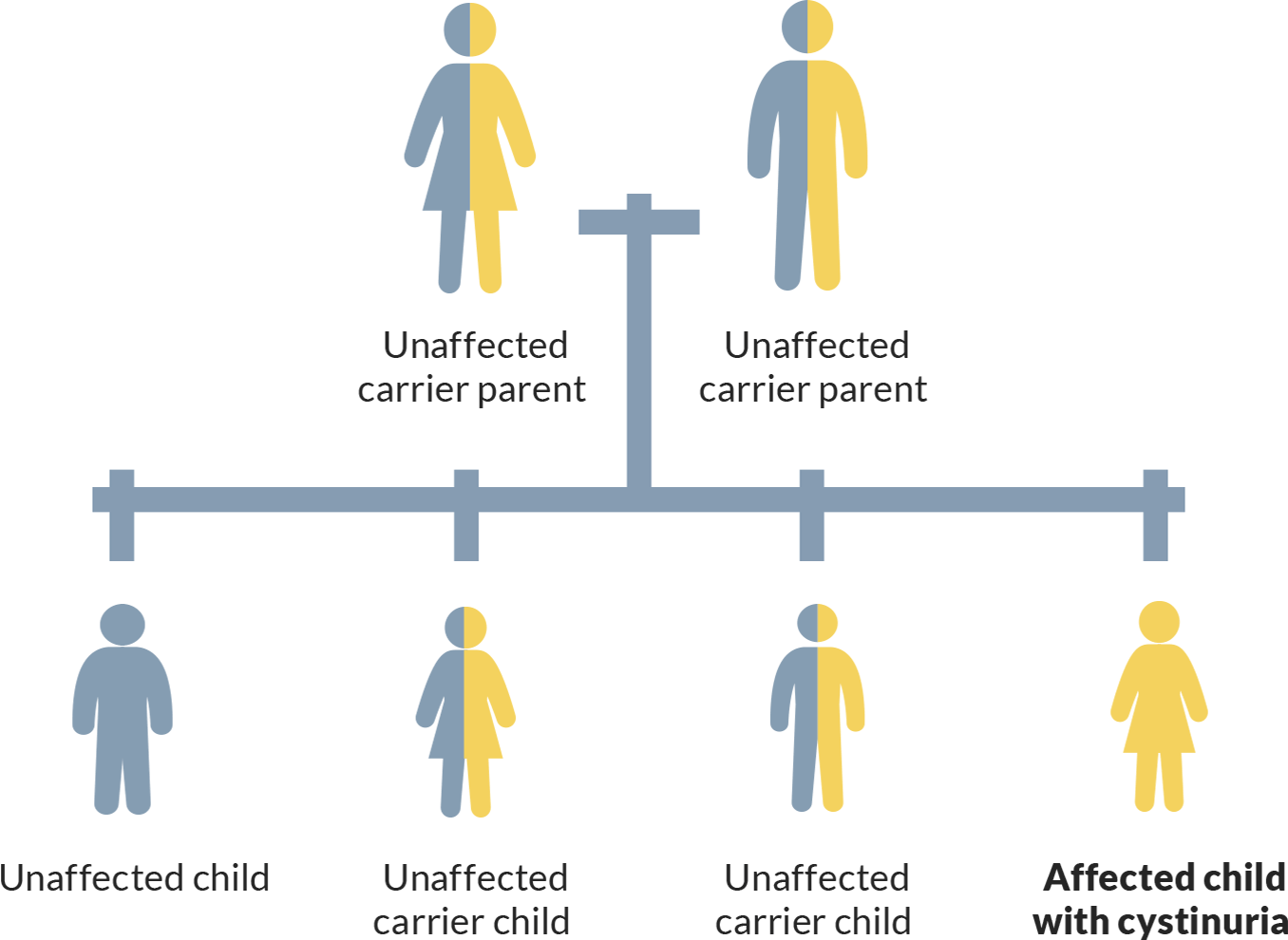
Cystinuria is an autosomal recessive disorder. “Autosomal recessive” refers to the way the disease is passed down through family members. People with cystinuria inherit 1 mutated (or abnormal) gene from each parent, as shown here.
Cystinuria results in the ongoing formation of a specific type of kidney stone called a “cystine kidney stone.” When cystinuria is not properly managed, you will continue to form stones. The consequences of repeat stones can affect many aspects of your life.
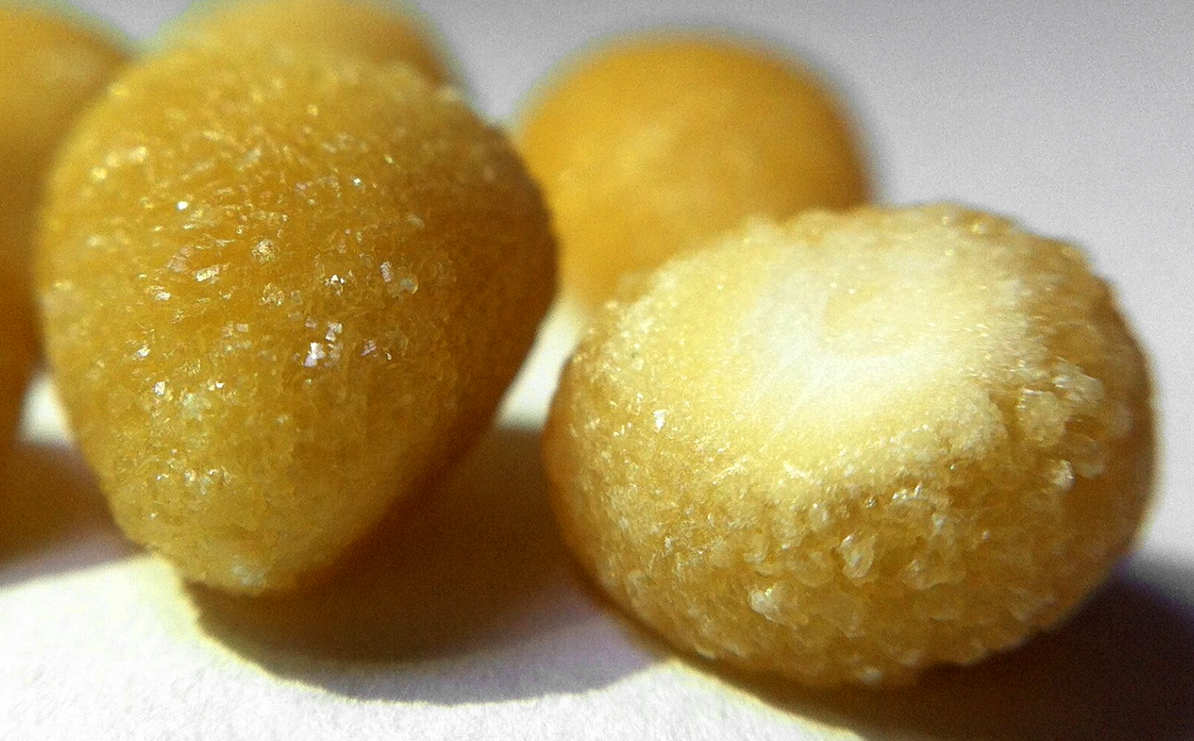
Distinct from other types of kidney stones, cystine stones are often larger, harder, and more frequent. Due to the larger stone size, cystine stones may be more difficult to pass, often requiring surgical or urological procedures (procedures related to the urinary tract) to remove.
There are many different types of kidney stones. Other more common kidney stones are often smaller and can form in people without genetic disorders. The more common kidney stones may occur much less frequently than cystine stones; in some cases, they can be prevented altogether through lifestyle changes.
Because cystinuria is a lifelong genetic disorder, if not properly managed, you will always be at risk of forming stones due to the continuous buildup of cystine in your urine.
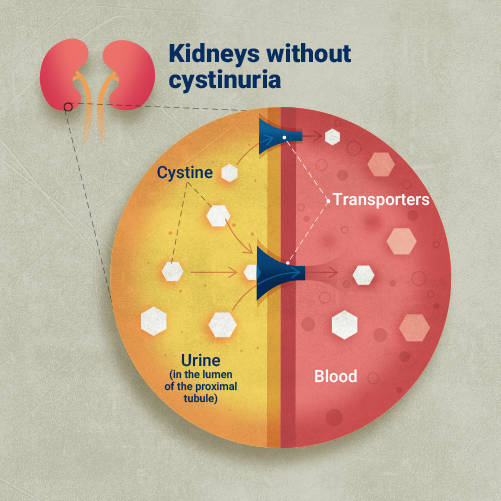
In the kidneys of healthy individuals, specific transporters filter out certain building blocks of protein (also called amino acids), such as cystine. These transporters help remove cystine from the urine, keeping urinary cystine levels balanced.
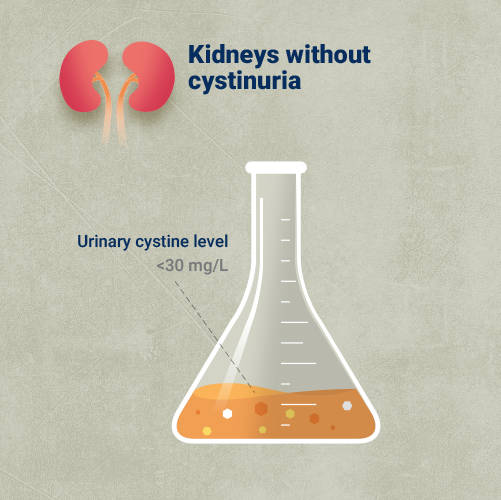
In healthy individuals, a urinary cystine level below 30 mg/L is considered normal and healthy.
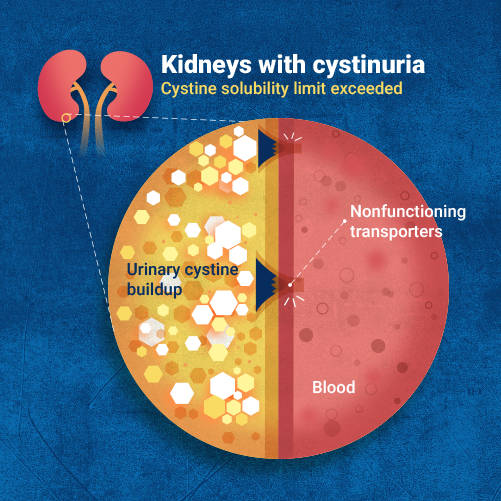
In the kidneys of people with cystinuria, these transporters don’t function properly and the normal cystine balance is disrupted.
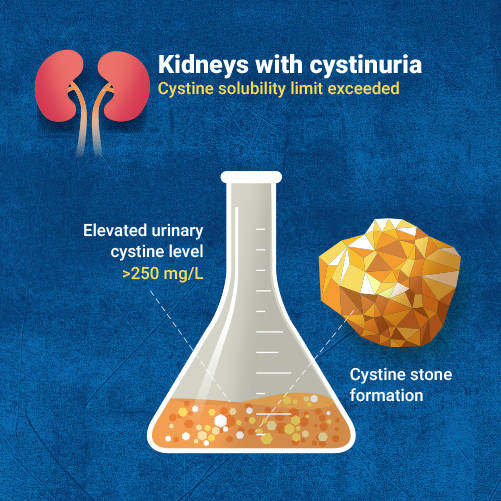
As a result, cystine builds up in the urine. When urinary cystine levels exceed the solubility limit, generally higher than 250 mg/L, cystine binds together to form stones. Even though cystine is building up over time, people with cystinuria may not feel any obvious pain until a stone event occurs.
Whether you have had 1 stone or 35 stones, the thought of having another can be excruciating. But beyond the unpredictable pain and stress involved, each stone may require surgery and put your kidneys at risk for long-term damage such as renal insufficiency and end-stage renal disease.
You can reduce your risk of cystine stone formation by working with your doctor to establish a treatment plan to actively manage your cystinuria.
By clicking Yes below, you will be leaving PreventCystineStones.com and going to a site to learn more about a prescription treatment option.
Do you wish to leave this site?

Cystinuria Resource: Rare Together
Join the Cystinuria Resource: Rare Together community on Facebook. This group is dedicated to individuals and families affected by cystinuria. This page offers information on cystinuria, as well as tips and advice on how to manage it, with the goal of preventing the next cystine stone.

International Cystinuria Foundation
Focused on supporting the cystinuria community by providing educational and health-related resources to affected individuals worldwide.

Offers users an interactive platform whereby visitors have access to the latest news and information about rare, orphan, and neglected diseases.

Dedicated to making change through the awareness, prevention, and treatment of kidney disease for healthcare professionals, patients, and their families.